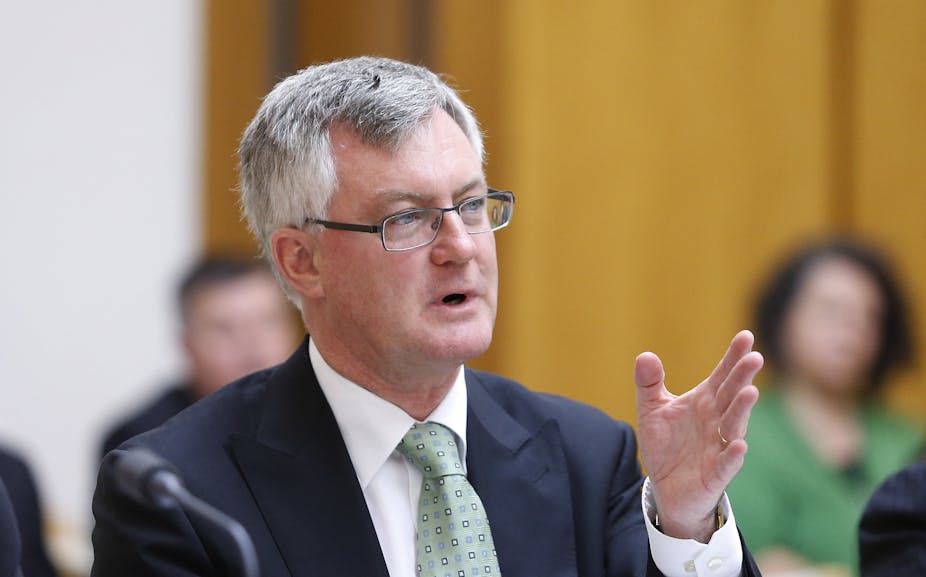Treasury secretary Martin Parkinson has announced an Australian Treasury Advisory Council, including leading business figures, to “help replicate the discipline provided by a private sector governance board”.
Among the members of the council will be the New Zealand Treasury secretary Gabriel Makhlouf.
Others are Elizabeth Bryan, chair of Caltex; Tracey Horton, president of the West Australian Chamber of Commerce and Industry; Belinda Hutchinson, chair of QBE and chancellor of Sydney University; Akiko Jackson, a management consultant in the financial services industry; Kevin McCann, chair of Macquarie Group, and Michael Vertigan, who has had a long career in the public sector and academia.
Parkinson, who the government will replace in the coming months, said the council would help drive further organisational change in the Treasury. The approach was modelled on the experience of the New Zealand Treasury.
In a speech in Canberra, Parkinson strongly defended Treasury’s record but conceded “there can often be a feeling that Treasury is insular, that we do not value the perspectives of those outside the organisation”.
Treasury was notoriously closed in the 1970s and early 1980s but even today it was common to see it criticised as “close-minded” and “not understanding business”, he said.
“While we can always be better and more active in engaging with business, I reject categorically the view that we simply don’t understand business.”
He said Treasury was a much more diverse organisation now in work experience and subject matter than ever before. He pointed to the considerable number of staff with private sector experience and said Treasury actively sought out opportunities to share staff with other organisations.
Many former Treasury staff had gone onto senior positions in business in Australia and overseas.
This suggested “the claim that we’re naïve about business is hard to justify.
"That said, it is no secret that I would like Treasury to be represented in Sydney and possibly other capitals to deepen further our links with business large and small, and with community grounds and other stakeholders.”
Parkinson said Treasury talked to business and subject area experts on an almost daily basis to inform the development of policy. Often it was too late to begin consulting when the government publicly announced a policy, so Treasury needed to be pro-active in its discussions with others.
He gave the example of the engagement over announced but un-enacted tax measures in late 2013.
Treasury with assistance from the Board of Taxation undertook confidential consultations with key stakeholders.
“While the decisions to not proceed with around two thirds of the measures ultimately rested with the government, the value of stakeholder consultation to Treasury’s advice and the subsequent decision-making process should not be underestimated,” he said.
“Despite this, the charge of not listening is probably an occupational hazards for all public servants.”
Perhaps part of the problem was not that Treasury had not changed, “but that we need to do a better job of communicating how we have evolved as an organisation, even while acknowledging that there is still a way for us to go”.
He said Treasury had a peak of just over 1000 staff in 2011 but now had to shed one in three positions by 2016-17. It was already half way there.
The department needed to find better ways to manage and monitor its priorities and performance.

